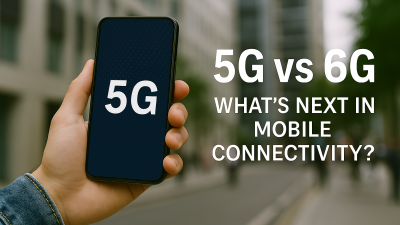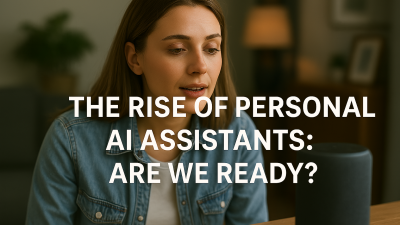In the age of cloud computing, AI, and blockchain, quantum computing stands out as the next frontier that could fundamentally transform the internet as we know it. While still in its early stages, the promise of quantum technology is vast—from revolutionizing data security to reshaping how we store, transmit, and process information online.
In this article, we’ll explore how quantum computing is poised to reshape the internet, the real-world applications emerging, and what it means for businesses, developers, and users in the near future.
🌐 What Is Quantum Computing?
Unlike traditional computers that use bits (0 or 1), quantum computers use qubits—units that can exist in multiple states at once (thanks to superposition). They also leverage entanglement, which allows qubits to be interconnected in powerful ways.
This results in computational power that scales exponentially, making quantum systems ideal for solving complex problems that classical computers can’t efficiently handle.
🔒 1. Quantum-Resistant Encryption and Cybersecurity
The Problem: Today’s internet relies heavily on RSA and ECC encryption, which could be broken in minutes by a powerful quantum computer using algorithms like Shor’s Algorithm.
The Solution:
- Post-quantum cryptography (PQC) is now a top priority.
- Organizations and governments (including the U.S. NIST) are racing to develop quantum-safe algorithms.
- Tech giants like Google, IBM, and Microsoft are testing hybrid encryption systems to future-proof data.
🔐 Implication: All data transmitted over the internet—including banking, communication, and healthcare data—may need to be re-encrypted using quantum-resistant protocols.
🚀 2. Ultra-Fast Data Transmission & Quantum Internet
Quantum Internet uses quantum entanglement to transmit information in a way that’s theoretically unhackable and near-instantaneous.
Key Innovations:
- Quantum teleportation of information (no data travels through a medium—just states).
- Quantum repeaters enabling long-distance communication without signal degradation.
- Early prototypes: China’s Micius satellite and Europe’s Quantum Communication Infrastructure (QCI).
⚡ Outcome: A future where messages can be sent securely across the globe without passing through traditional intermediaries.
🧠 3. AI Acceleration on the Web
Quantum computing’s ability to process large datasets quickly could significantly speed up training and inference in machine learning:
- Faster content recommendations
- Improved fraud detection
- Smarter autonomous systems and bots
In a quantum-powered internet, AI systems could operate with drastically reduced latency, providing real-time insights and dynamic personalization at an unprecedented scale.
🧩 4. Solving Internet Bottlenecks
Today’s internet struggles with:
- Traffic congestion
- Bandwidth limitations
- Latency in decentralized systems
Quantum algorithms like Grover’s Algorithm could optimize routing and search processes, leading to:
- More efficient network traffic
- Faster data retrieval
- Optimized content delivery networks (CDNs)
🛣 Impact: Smoother streaming, real-time VR/AR experiences, and low-latency communication across the globe.
🛡 5. Decentralized Web and Blockchain Enhancement
Quantum computers are both a threat and opportunity for blockchain:
The Threat:
- Quantum computers could break the cryptography securing Bitcoin and Ethereum wallets.
The Opportunity:
- Quantum cryptography could lead to quantum-secure blockchains.
- Faster consensus mechanisms for decentralized networks
- Improved scalability and energy efficiency
🌐 Quantum-secure Web3 could enable safer, faster, and more reliable decentralized apps and smart contracts.
🧭 6. Real-Time Global Simulations and Modeling
Quantum computers excel at simulating complex systems. In the context of the internet, this allows:
- Real-time modeling of network infrastructures
- Predictive maintenance for global internet nodes
- Dynamic load balancing
Industries like logistics, weather forecasting, and global finance could all benefit from internet services enhanced by quantum-powered modeling engines.
📅 When Will This Become Reality?
Current Progress:
- IBM, Google, Rigetti, and D-Wave are developing quantum processors with 100+ qubits.
- Governments and private sectors are investing billions into quantum R&D.
- The Quantum Internet Alliance aims to deploy a pan-European quantum network by 2030.
Timeline:
- 2025–2030: Quantum-safe internet protocols become standardized.
- 2030–2040: Emergence of quantum-powered cloud services and secure communication networks.
- 2040+: Widespread use of quantum-enhanced internet infrastructure.
🧠 What Should Businesses and Developers Do?
- Audit data security practices to assess quantum vulnerability.
- Learn quantum basics (start with Python libraries like Qiskit).
- Monitor developments in post-quantum cryptography and be ready to adapt.
- Collaborate with academic and tech institutions testing quantum communication.
🧩 Conclusion: A New Digital Age Is Coming
Quantum computing has the potential to fundamentally change the internet—making it faster, more secure, and more intelligent. While challenges remain, the path is clear: those who prepare for this revolution will thrive in a new era of digital innovation.





